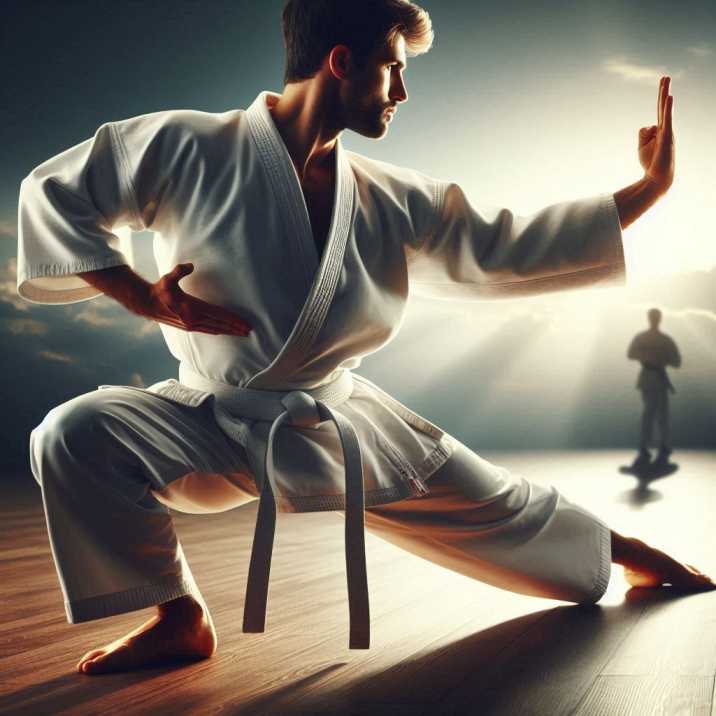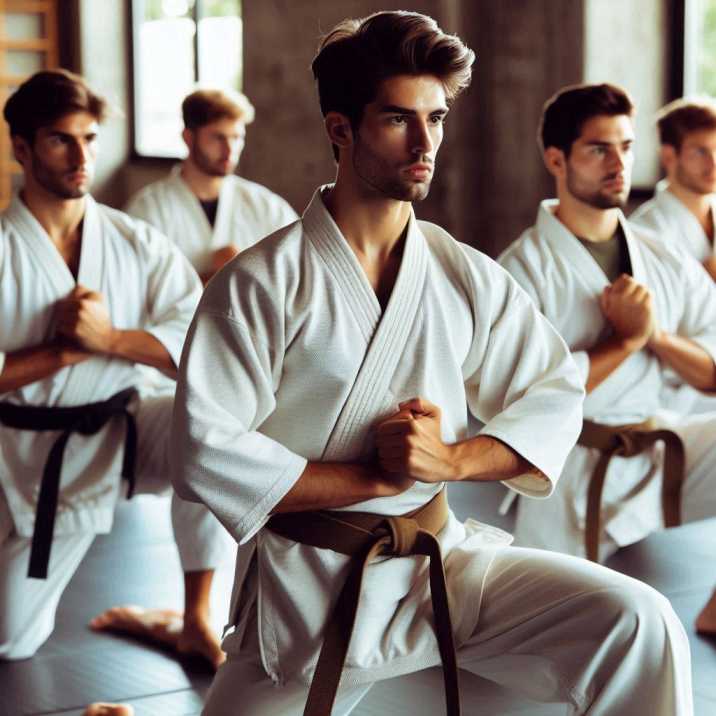Table of Contents:
Table of Contents
- Introduction
- Understanding Martial Arts
- The Essentials of Karate
- Comparing Martial Arts and Karate
- Benefits of Practicing Martial Arts
- Benefits of Practicing Karate
- Choosing the Right Discipline
- Frequently Asked Questions (FAQs)
Introduction
Is martial arts better than karate? This is a common question for those interested in beginning a martial arts journey. To answer it thoroughly, we need to dive into what martial arts and karate encompass, their benefits, and how they compare. This guide aims to provide clear insights into these disciplines, making it easier for you to decide which path suits your interests and goals best.

Understanding Martial Arts
Martial arts is a broad term that includes various forms of combat and self-defense practices. These disciplines originate from different cultures and countries, each with unique techniques, philosophies, and training methods.
Types of Martial Arts
There are several types of martial arts, including but not limited to:
- Taekwondo: Known for its high kicks and speed.
- Judo: Focuses on throws and grappling techniques.
- Brazilian Jiu-Jitsu: Emphasizes ground fighting and submissions.
- Muay Thai: The art of eight limbs, using fists, elbows, knees, and shins.
Philosophies and Principles
Martial arts often incorporate mental and spiritual aspects. The focus is not only on physical strength but also on discipline, respect, and self-improvement. For instance, the concept of “Do” in many martial arts, such as Taekwondo (the way of the foot and fist) and Judo (the gentle way), emphasizes a path to personal growth and enlightenment.
The Essentials of Karate
Karate, originating from Okinawa, Japan, is one of the most popular martial arts worldwide. It is primarily a striking art that uses punches, kicks, knee strikes, and elbow strikes.
Karate Styles
There are various styles of karate, each with unique characteristics:
- Shotokan: Known for its deep stances and powerful linear techniques.
- Goju-Ryu: Combines hard and soft techniques.
- Shito-Ryu: Emphasizes both traditional kata and practical applications.
- Wado-Ryu: Focuses on fluid movements and body shifting.
Training Components
Karate training typically includes:
- Kihon: Basic techniques and movements.
- Kata: Forms or patterns of movements.
- Kumite: Sparring practice.
- Self-defense: Practical applications of techniques.
Comparing Martial Arts and Karate
Is Martial Arts Better Than Karate?
When comparing martial arts and karate, it’s important to understand that karate is a subset of martial arts. Therefore, the comparison often involves karate versus other specific martial arts rather than martial arts as a whole.
Techniques and Training
- Striking vs. Grappling: Karate primarily focuses on striking, while other martial arts like Judo and Brazilian Jiu-Jitsu emphasize grappling and submissions.
- Forms and Sparring: Karate places significant importance on kata (forms), whereas arts like Muay Thai and Kickboxing emphasize continuous sparring and real-time combat situations.
Physical and Mental Benefits
- Physical Fitness: Both martial arts and karate improve physical fitness, but the intensity and focus can vary. For instance, Brazilian Jiu-Jitsu offers rigorous ground training, while karate emphasizes powerful strikes.
- Mental Discipline: Both disciplines promote mental strength, focus, and discipline, crucial for personal development and self-control.

Benefits of Practicing Martial Arts
Practicing martial arts offers numerous benefits that extend beyond physical fitness. Here are some key advantages:
Physical Benefits
- Strength and Flexibility: Martial arts improve overall strength, flexibility, and endurance.
- Cardiovascular Health: High-intensity training boosts heart health.
- Coordination and Balance: Techniques require precise movements, enhancing coordination and balance.
Mental Benefits
- Stress Relief: Martial arts training helps reduce stress through physical activity and mental focus.
- Confidence: Learning self-defense techniques boosts self-confidence and assertiveness.
- Discipline and Respect: The structured environment fosters discipline, respect for others, and self-control.
Benefits of Practicing Karate
Karate, as a specific martial art, has its unique set of benefits:
Physical Benefits
- Full-Body Workout: Karate engages all muscle groups, providing a comprehensive workout.
- Reflexes and Agility: Regular practice sharpens reflexes and enhances agility.
- Self-Defense Skills: Karate techniques are practical for real-life self-defense situations.
Mental Benefits
- Focus and Concentration: Kata practice improves focus and concentration.
- Perseverance: Progressing through the belt system teaches perseverance and goal-setting.
- Inner Peace: The philosophical aspects promote inner peace and mindfulness.
Choosing the Right Discipline
Choosing between martial arts and karate depends on your personal goals, interests, and physical abilities. Here are some tips to help you decide:
Consider Your Goals
- Self-Defense: If self-defense is your primary goal, arts like Brazilian Jiu-Jitsu or Krav Maga might be more suitable.
- Fitness: For a high-intensity workout, Muay Thai or Kickboxing could be ideal.
- Mental Discipline: If you seek mental discipline and a structured path, karate or Taekwondo are excellent choices.
Try Different Classes
- Experience Various Styles: Attend introductory classes in different martial arts to see which one resonates with you.
- Talk to Instructors: Discuss your goals with instructors to get their recommendations.
Think About Accessibility
- Local Availability: Consider the availability of qualified instructors and dojos in your area.
- Class Schedules: Ensure the class schedules fit your routine.
Conclusion
In Conclusion, Is martial arts better than karate? Deciding whether martial arts or karate is better depends on your personal goals. Both offer physical fitness, self-defense skills, and mental discipline. Martial arts provide a variety of techniques and philosophies, while karate focuses specifically on striking techniques and kata.
Consider what you want to achieve. If you prefer a broad range of combat forms, martial arts might be best. For structured training and specific techniques, choose karate. Explore different styles and talk to instructors to find the best fit for you. Both paths offer a rewarding journey of self-improvement and fitness.
Frequently Asked Questions (FAQs)
1. Is martial arts better than karate for self-defense?
Both martial arts and karate offer valuable self-defense skills. However, some martial arts like Brazilian Jiu-Jitsu focus more on grappling and ground fighting, which can be advantageous in self-defense situations.
2. Can children benefit from karate?
Yes, karate is excellent for children. It teaches discipline, respect, and self-confidence while improving physical fitness and coordination.
3. How long does it take to get a black belt in karate?
On average, it takes about 3-5 years to achieve a black belt in karate, depending on the individual’s dedication, frequency of training, and the dojo’s requirements.
4. Are there age restrictions for starting martial arts?
No, martial arts can be started at any age. Many dojos offer classes for different age groups, ensuring that training is suitable for everyone.
5. What should I look for in a martial arts school?
Look for a reputable school with qualified instructors, a positive learning environment, and a curriculum that aligns with your goals. Visiting the school and observing classes can also be helpful.


